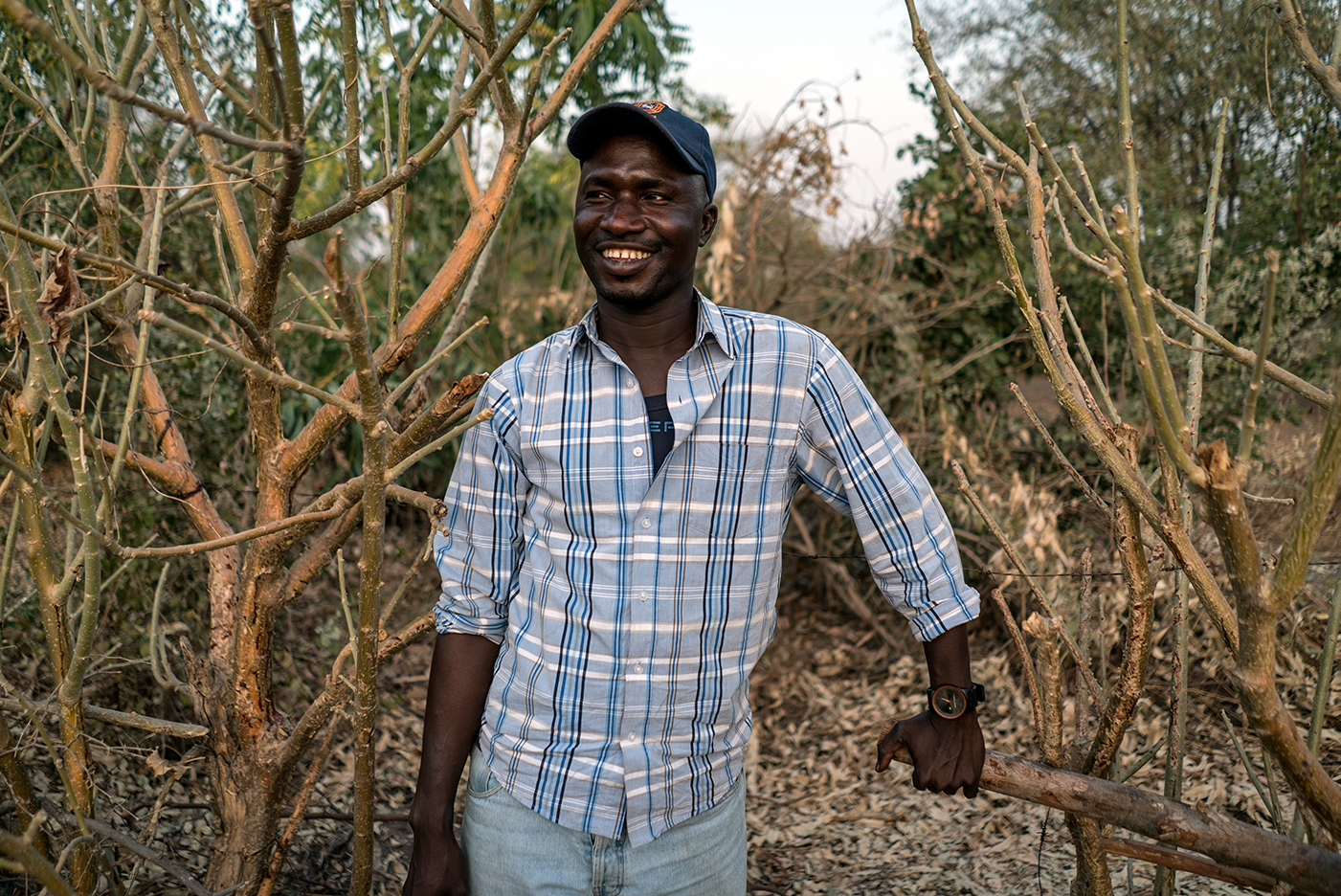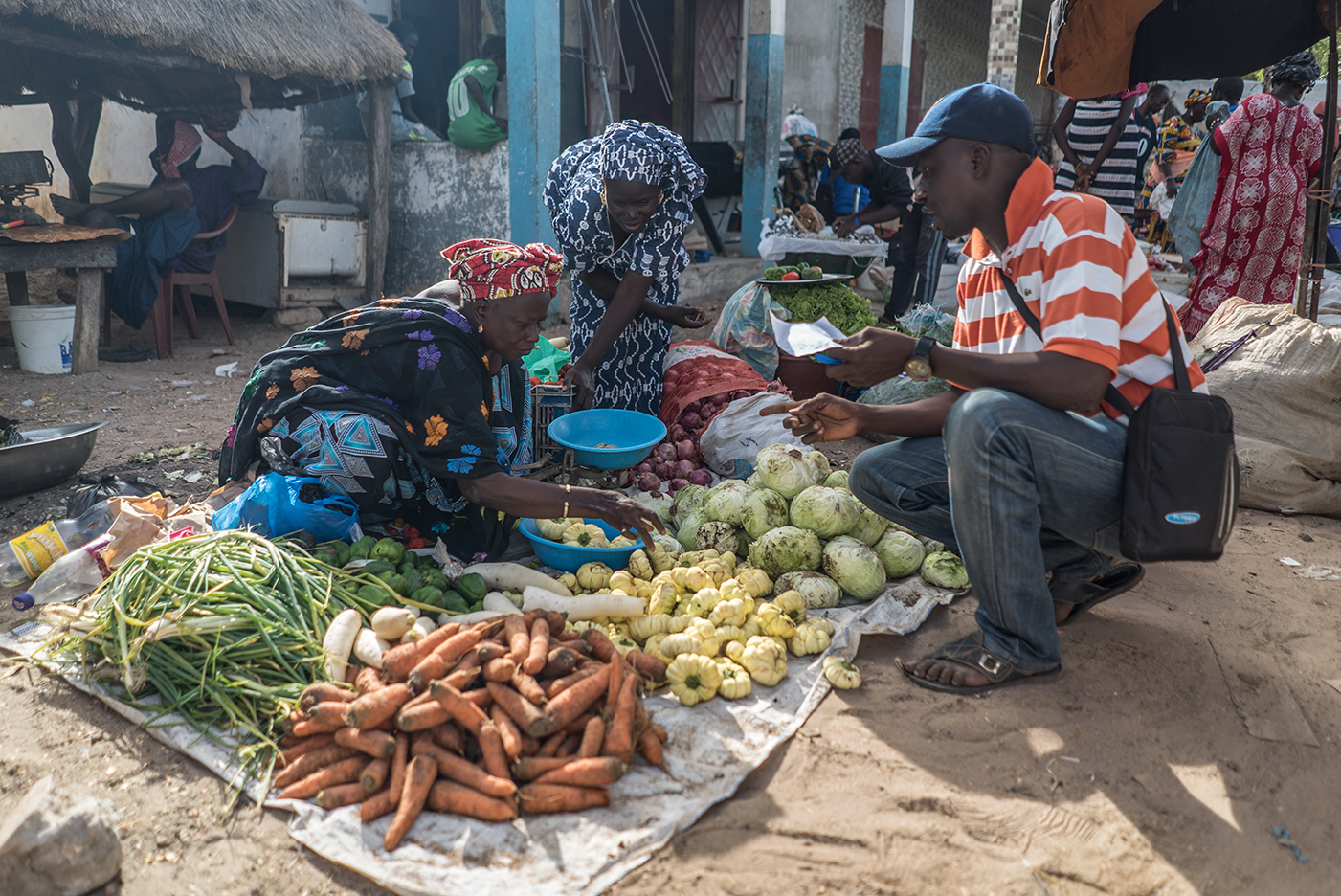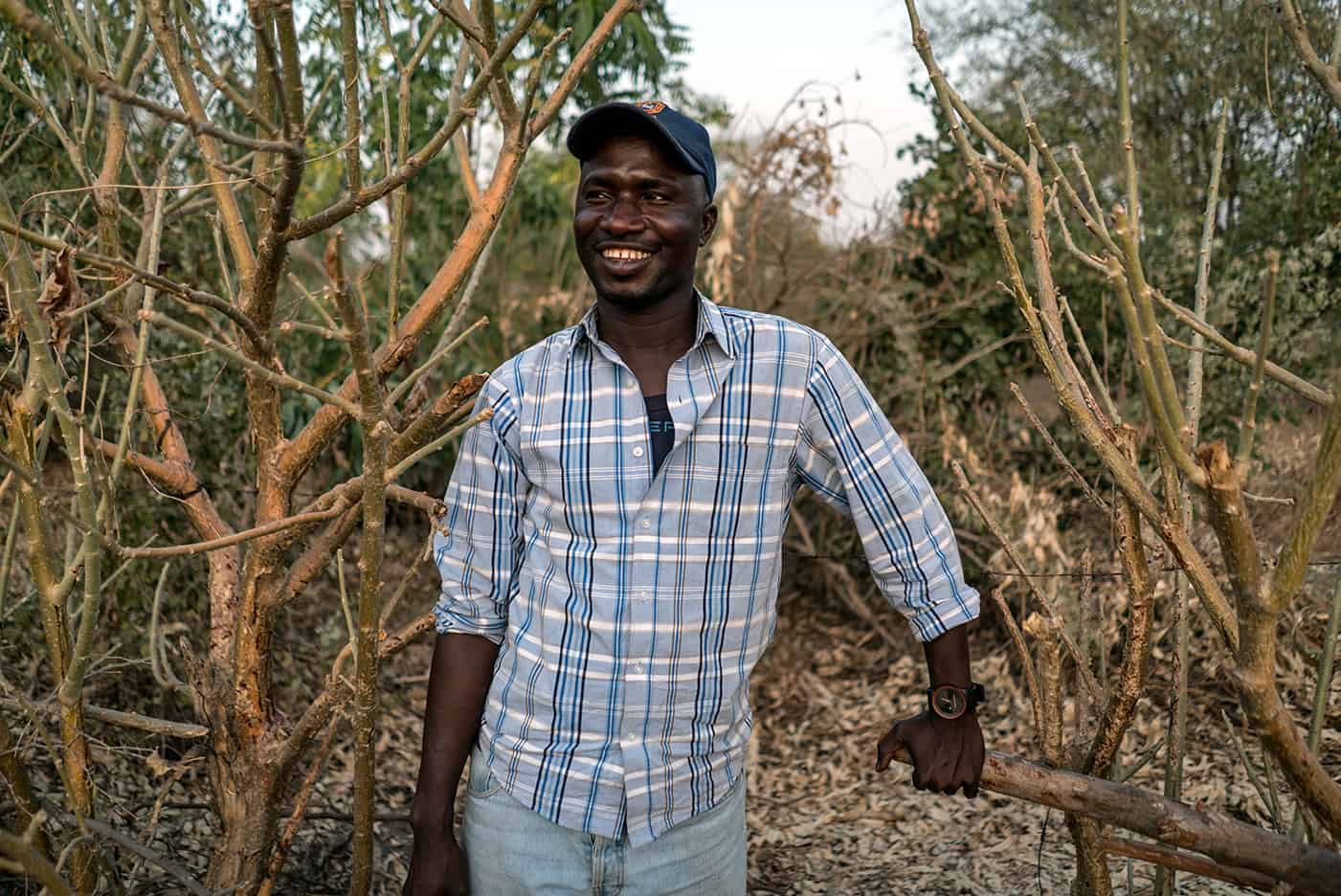“They’ve got it right, my ritual every morning for the past five years has been to plant a tree when I wake up,” Babou says.
Babou is the Senegal Training Coordinator for Trees for the Future (TREES). He is dedicated to reviving the land in his country and helping farmers improve their health and income. At just 40-years-old, he has planted countless trees and trained an estimated 10,000 people in the Forest Garden Approach. Babou’s colleagues and fellow farmers say he serves as a reminder of what trees and agroforestry can do for people and their land.

Getting his Start at TREES
Babou joined the TREES team in 2016 after working in agriculture projects in the Kaffrine region.
“I got involved with TREES because I found their Forest Garden Approach interesting,” he says. “I really think this is the path to development for people in rural Africa.”
Babou started as an assistant technician. A dedicated, hardworking member of the team, he worked his way up to his current supervisory position of Training Coordinator. He oversees training staff across TREES’ Senegal projects – spanning Kaffrine, Kedougou, and Fatick. He also manages the Forest Garden demonstration site in Kaffrine. Babou has worked tirelessly over the last six years to provide staff, partners, and farmers with Forest Garden training.
“Since 2016… I have trained over 30 organizations and at least 10,000 in Senegal, Mali, and Gambia,” he estimates.
“Babou is like a tree doctor,” says Modou Gueye, a colleague of Babou’s. “He makes desert areas totally green.”
Babou Trees Ndao is modest though. He points out that his skill and the success he has had in training farmers comes down to the Forest Garden Approach.
“I am proud when I see people with agricultural degrees tell me that they have learned more with me in five days [of training] than in three years of schooling. This shows how good our technique is,” he says.
Creating Lasting Change for his Country
TREES works across sub-Saharan Africa and has planted more than 200 million trees in the last three decades. Babou saw the difference agroforestry can make firsthand.
“I live in Ngodiba and in this area, in a few months, TREES regenerated the land,” he recalls. “Lucky the people of Kaffrine were that TREES came. I hope one day that TREES [reaches] all areas of Senegal. You will see an impressive economic and ecological change!”
As TREES expands through the region, Babou says Forest Garden farmers are standouts in the industry. They are some of the only farmers producing certain foods. Lettuce, for example, is a crop that hasn’t been grown in Kaffrine for years, but is readily available in Kaffrine Forest Gardens.
“The first salad shoots were considered a miracle!” he recalls.

Babou says it isn’t uncommon for local farmers to approach him and his TREES colleagues for advice when they see their neighbors’ success with Forest Gardening.
“The Forest Garden Approach is the sure future of agriculture.”
Bringing Work Home
Farming has been a passion for Babou since childhood, but after joining the TREES team and mastering the Forest Garden Approach his interest in agroforestry grew. He has since gotten his whole family involved in Forest Gardening. But he credits his wife with managing their Forest Garden.
“She has become more of an expert than me!” he says.
His family spends time in the Forest Garden together, especially in the hotter months. In addition to fresh food, their Forest Garden (and Forest Gardens around the region) offer shade and cooler temperatures.
“TREES does not only serve the population, but also us as employees,” he says.
Meet the rest of the Senegal team and TREES global staff here.
